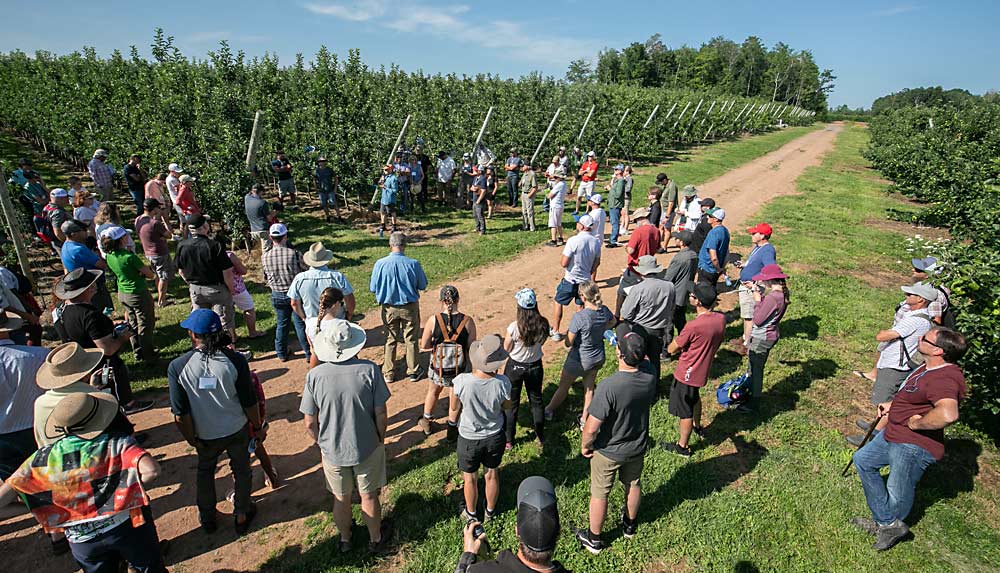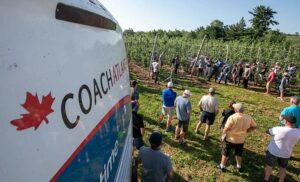
Day 1 of the International Fruit Tree Association’s 2023 summer tour of Nova Scotia, Canada, is in the books.
On July 24, three busloads of IFTA members visited four orchards in the Annapolis Valley, where most of the province’s 5,000 acres of apples are grown. It was a challenge for many of the members to make the tour in the first place, as massive rains the weekend before the tour caused historic flooding, washing out many roads in the province.
Fortunately, most of the roads were dry by Monday morning. The first IFTA stop was Birchleigh Farms, where Waldo and Judy Walsh grow nearly 100 acres of apples. At Birchleigh, attendees learned about a replant trial and innovative management practices for tackling climate change.
When Honeycrisp was introduced to Nova Scotia in 1996, it reinvigorated the local apple industry. Honeycrisp was a good fit for the maritime province, coloring well during the cool evenings, and its high returns encouraged growers to reinvest in their orchards. Most new Nova Scotia plantings are spaced 3 feet by 12 feet now, on EMLA 26 rootstock or some of the Genevas. Nova Scotia orchards receive about 50 inches of rain annually, and daily summer temperatures average about 68 degrees Fahrenheit. Honeycrisp is the most-planted variety, followed by Ambrosia, Gala and club varieties.
IFTA’s second stop was CAP Farms, where the Parker family grows about 100 acres of apples, about half of them trees at the original spacing top-worked to Honeycrisp or Pazazz, and the other half high-density plantings. The variety mix now is about 75 percent Honeycrisp and 15 percent Pazazz, followed by Ambrosia, Red Prince and Cortland. At CAP, the tour saw a high-density block of Ambrosia and a homemade, over-the-row sprayer.
After lunch, the tour stopped at Van Meekeren Farms, owned by brothers Stephen and Michael Van Meekeren. They grow 125 acres of apples, most of them high-density Honeycrisp, Gala, Ambrosia and Pazazz. They store, pack and market their own fruit, as well as fruit from other growers in the valley. At their farm, speakers discussed apple storage techniques and the tour saw new technologies in action.
The final stop of the day was Vermeulen Farms, a 450-acre fresh fruit and vegetable farm run by Andy and Ben Vermeulen. The tour saw raised-bed strawberries covered by plastic tunnels and learned about the farm’s labor challenges and its use of Canada’s foreign guest-worker program.
Check Good Fruit Grower’s website and future issues of the magazine for more in-depth reporting about the Nova Scotia tour.
—by Matt Milkovich







Leave A Comment